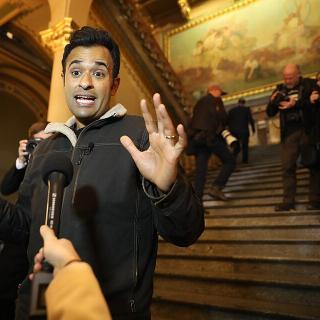As the 20th anniversary of 9/11 comes and goes this month, hopefully Americans start to recognize one thing that still persists past the ceremonial pageantry and patriotism we typically see on this day every year –– the continuation of invasive post-9/11 policies, both at home and abroad. Make no mistake, there should always be a time to reflect upon the tragic events of that fateful day and remember all the innocent lives that were lost, but we also must never forget that the domestic and foreign policies enacted after 9/11 ended up costing thousands of more innocent lives, both in our own country and others around the world. Frankly, with the consistent expansion of government surveillance and overreach that has persisted in the U.S. since 9/11, one would assume it must be hard to forget.
First and foremost, it can’t be understated just how costly the military operations (waged elsewhere in the world) following 9/11 were to America. Trillions of taxpayer dollars were spent on our wars in Afghanistan and subsequently Iraq, all in the name of patriotism and because those nations were told they were either “with us or with the terrorists.” Of course, these wars didn’t become beholden to just those boundaries –– soon the expansive “War on Terror” and terms like “Axis of Evil” gave the U.S. military a perfectly vague description of who exactly our enemies were, with no real clear confines to contain them. Couple that with a lil’ loose legal reasoning put forth by some White House lawyers and –– boom! We got ourselves a worldwide battlefield full of invisible enemies, with a big blank check to fund it all.
But wait, there’s more –– why only let foreign countries feel the powerful wrath of the United States government and let our own citizens miss out on all the fun? Well, don’t worry folks! To scratch that domestic surveillance itch –– especially since we don’t know if the terrorists could already be living amongst us –– we were given the Homeland Security Act of 2002, which created the all new Department of Homeland Security and several other law enforcement agencies (with quite a bit of authority!) One of those included the U.S. Immigration and Customs Enforcement (ICE,) which was created to take on all the dangerous terrorists that could be spilling over our border, even though several of the 9/11 hijackers were here on student visas. Since then, ICE has only done a great job with no record of ethical violations!
Of course, this didn’t mean that some of the older surveillance agencies in our federal government couldn’t have their fun, too. The newly created Transportation Security Agency (TSA) –– that was originally created in the wake of 9/11 under the Department of Transportation –– was quickly shifted over into the Department of Homeland Security so all the government surveillance and meddling could be done under one roof. Eventually, the even-older National Security Agency (NSA,) which was established during the Truman Administration, wanted to get in on the game with their domestic spying programs, giving them a swath of legal authority to monitor calls going in, out and all over the U.S. The program was eventually exposed and deemed unconstitutional by Edward Snowden and many other experts.
This was the new America in the wake of September 11, 2001 and 20 years later, it’s hard to say how much has truly changed or improved. The amount of taxpayer dollars that have gone into our wars abroad in an effort to “keep us safe” sure did seem to fail when it came to a global pandemic and our struggling healthcare system. Now that we better understand the migrant crisis and the nuance of those seeking refuge here, it’s also hard to say if ICE has accomplished any of its goals. And for that matter, as Americans are getting tired of being surveilled at the airport or in their homes, it’s time to question agencies like the TSA and NSA to see if they have fulfilled their purposes. From drones to our phones, the U.S. government seems to have us under their microscopes, boots or thumbs whenever they want.
None of this is to say that there’s no hope for true freedom and unity in our modern times. As we finally end and pull back the curtain on such foreign policy blunders like Afghanistan, perhaps we can pull it back a little bit further to reexamine our post-9/11 domestic policies as well. Transparency and accountability tend to have their merits when it comes to government –– and when the watchful eyes of surveillance turn back upon themselves, liberty no longer has to be sacrificed in the name of security.



